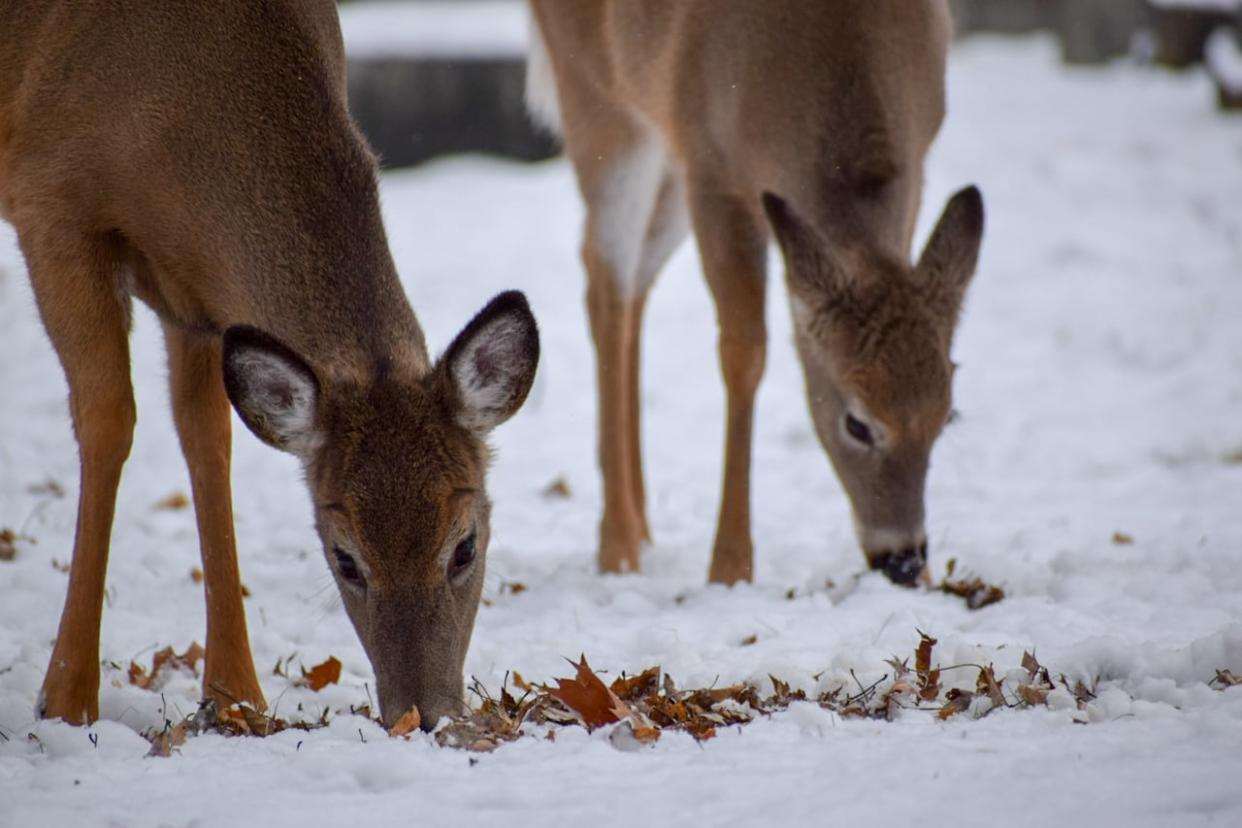New rules aim to stop spread of chronic wasting disease in deer

The provincial government has introduced new rules and restrictions in an attempt to stop the spread of chronic wasting disease among deer and other antlered animals in B.C.
The restrictions are in effect in a part of the province's Kootenay region, where the first two confirmed cases of the disease were recently recorded.
In a release, the province says any roadkill cervids — including moose, deer, elk and caribou — in the impacted area will now be subject to mandatory testing for chronic wasting disease.
There are also restrictions around the transportation and disposal of the animals' bodies.
The impacted area is south of and includes Highway 3, between south of Cranbrook and toward the United States border, west to the Moyie Range and east to the Macdonald Range.
Limited risk to humans
Chronic wasting disease is a fatal infection caused by an abnormal protein called a prion.
Prion diseases are a family of rare neurodegenerative disorders that can be found in both humans and animals, impairing brain function.
Perhaps the best known example is bovine spongiform encephalopathy, commonly referred to as mad cow disease.
When found in deer and other cervids, it slowly kills the animals as they lose their ability to function.
B.C.'s Ministry of Water, Land and Resource Stewardship says there is no direct evidence that the disease can spread to humans, nor have there been any instances of it being found in humans.
"However, to prevent any potential risk of transmission or illness, Health Canada and the World Health Organization recommend people not eat meat or other parts of an animal infected with chronic wasting disease," the ministry said in a release.
Province monitoring spread
To date, chronic wasting disease has primarily been found in deer and elk populations in Saskatchewan and Alberta, and more recently in a wild deer in Manitoba, as well as a farmed red deer in Quebec, according to the Canadian Food Inspection Agency.
However, it recently spread into B.C. with two positive cases found south of Cranbrook, which is about 84 kilometres west of the border with Alberta.
The first was from an adult male mule deer, and the second was from an adult female white-tail deer, with the diagnoses confirmed Jan. 31 by the Canadian Food Inspection Agency.
The province is encouraging people to watch out for signs of the disease in animals, with symptoms including weight loss, drooling, poor co-ordination, stumbling or unexplained sickly behaviour.
Anyone who sees an antlered animal with these symptoms is asked to report it to the conservation officer service at 1-877-952-7277.
More information can be found on the B.C. government's website.


